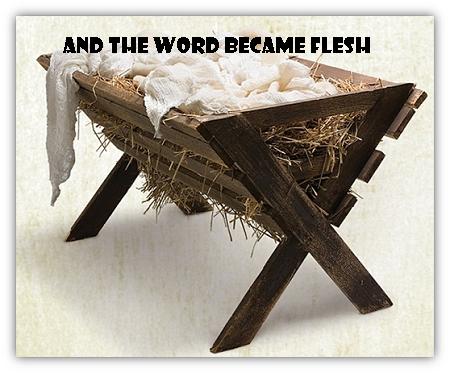The Preaching of the Word Is the Word
The Preaching of the Word Is the Word

An odd title? We might consider it a rather strange statement: that the preaching of the Word of God is nothing but the Word itself. It may appear to be somewhat oversimplified undifferentiated. A sermon needs to be about the Word, about a text of the Bible. But a sermon in itself is something different than God’s Word. We are not quite prepared to identify a sermon, from whoever it may be, with the Word of God itself. There is a large difference between the two.
There is the text. Not to forget the preacher. The study needed to understand the text. The explanation of the Bible text, with everything that goes with it. The contemplation of this text as meditation upon the Word, and then finally the sermon, in which the text is presented to the congregation. There are quite a few steps between that original text and the listener, and must the latter just simply take it for granted that what the minister says on the pulpit is the Word of God? It is a sermon, and a sermon has to do with a text, but it’s not the text itself. It is a version, the product of what a human being has done with this text. One minister knows how to “extract” a lot more than the other. Therefore, let us be careful and not just say that a sermon is the Word of God. That’s how we think about this. This certainly holds true for today, now that for various reasons the sermon has been brought into disrepute!
Yet A Reformational Conviction⤒🔗
Nevertheless, it was the conviction of the Reformation, which we don’t necessarily wish to abandon today, that the preaching of God’s Word is no different than the Word of God himself. It is likely that today this thesis requires a broader explanation than in the days of the Reformation. It was only then that people rediscovered the importance of proclaiming the Word again. The church had become a sacramental church. The gospel had all but disappeared.
The altar, not the pulpit, governed everything. It was a tremendous event that the Word was once again being proclaimed. And most essential was the content of that proclamation. It was not as if clever stories were told, or old wives’ tales—as Paul would say and as many were told during the Middle Ages. The gospel sounded forth as a glad tiding. People were convinced that the church had woken up again, had risen up from the Word. And this led to a whole different appraisal of the essence of the preaching.
This explains also how the Second Helvetic Confession (1562) could arrive at its formulation. Holy Scripture is the Word of God. It has sufficient authority not because of people, but from itself. This Word comes to us in the preaching. And through this it does not change its nature.
“Therefore when this Word of God is now preached in the church by preachers lawfully called, we believe that the very Word of God is proclaimed, and received by the faithful; and that neither any other Word of God is to be invented nor is to be expected from heaven.” The preaching of the Word of God is the Word of God. And now we must pay attention to the Word itself, as it is preached and not the minister who preaches. Sharply it is worded, “Even if it were proclaimed by a villain or a great sinner, nevertheless the Word of God remains true and good.”
God’s Word in Man’s Word←⤒🔗
This fundamental conviction is related to the confession that God’s Word itself resounds through the human word. And this insight is a consequence of the incarnation of the Word of God. The miracle of the incarnation, of which John 1:14 is speaking, “And the Word became flesh and dwelt among us,” has a tremendous effect and impact. The eternal Word comes to dwell among us, in the weakness of human flesh. This is not only something that has meaning for the birth of the Saviour, it is also of importance for the form of preaching.
The eternal Word comes to us on the lips of people of flesh and blood. God teaches and instructs us through mere creatures. Calvin speaks about the humbling manner in which this occurs. Small, insignificant people are raised from the dust to proclaim God’s Word. The foolishness of the preaching is connected not only to the content of the proclamation, with the message of the cross, but it also depends on the way in which God’s wisdom comes to us: God has chosen the weak in order to shame the wise and the strong (see 1 Cor. 1:26, 27). Not through a voice of God as at Sinai, not through the voice of an angel as in the fields of Ephrathah, but through a weak human voice do we hear the voice of God himself. This mode of God’s speaking belongs to the foolishness and to the exasperation of the gospel itself.

As God Desired It←⤒🔗
Behind this all is the will of God: it is God’s pleasure who in divine liberty has chosen and ordained this means. He did not leave it up to us to choose how he would work salvation in Christ. He did not leave it to us to determine how this salvation was to be administered. In his absolute power he has shown us the way. He has bound us to it and he continues to bind us to it.
Paul indicates this in 1 Cor. 1:21, 25, “For since, in the wisdom of God, the world did not know God through wisdom, it pleased God through the folly of what we preach…. For the foolishness of God is wiser than men, and the weakness of God is stronger than men.”
When we pose the question as to how the Word of God relates to man’s word, we can point to the parallel of the incarnation of the Word in the manger in Bethlehem. We can think also of the inspiration of Scripture through the Holy Spirit. In both cases we can point to weakness, smallness, and foolishness, and also to the exasperation that is related to the incarnation, the inspiration, and to the preaching of the gospel. The preaching of the Word of God is the Word of God in the servient form of the spoken human word.

Add new comment